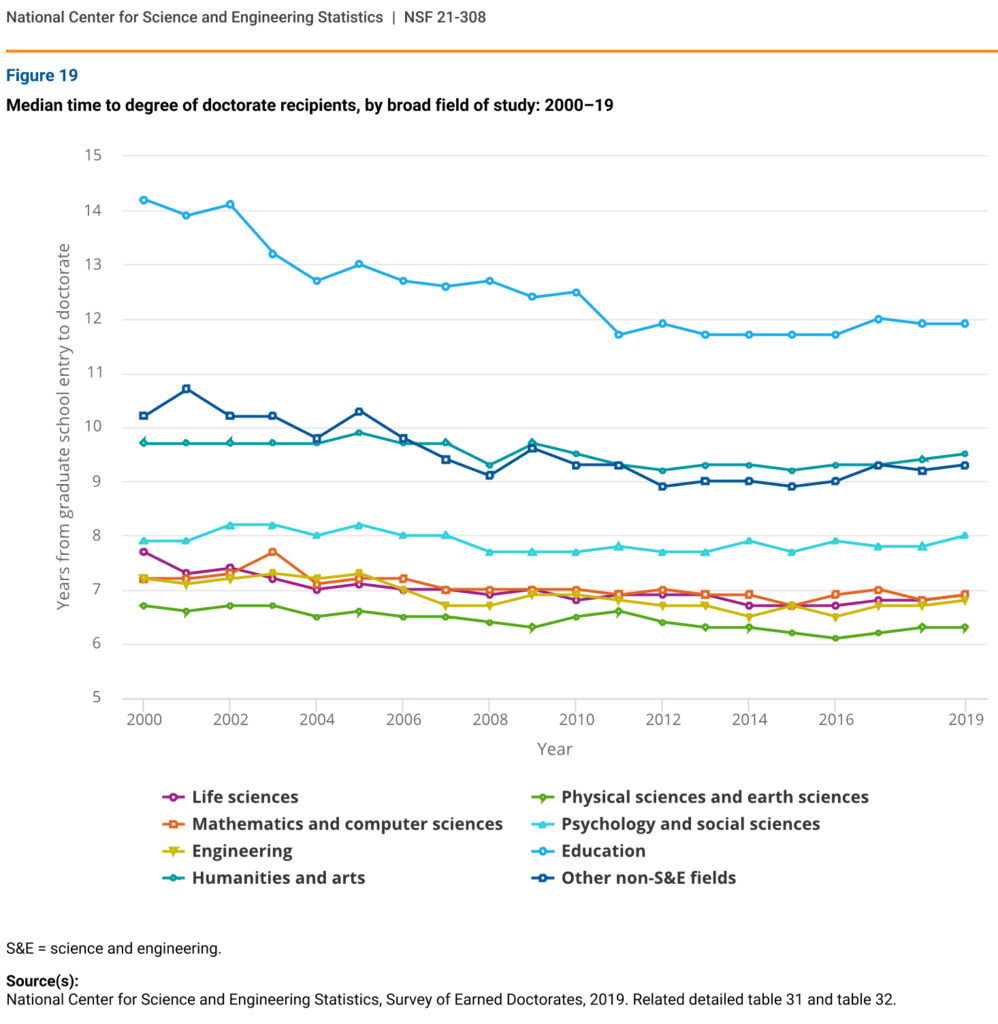Being passionate about your field of study is a good thing. Aspiring to be a researcher in your subject is also mentally rewarding.
However, Money is the one thing you need to survive and ensure that you can focus on your research.
It is not possible to do a PhD without funding for a majority of PhD aspirants because
- “Give performance and get funding” is risky
- A good salary is usually offered against “perceived” value
- Other funding options might be riskier and tedious
- Surviving a PhD without funding is close to impossible
- Doing a PhD (without funding) may not be a good career decision
Lets discuss them in detail
1. “Give performance and get funding” is risky
Sometimes the admission offer promises to fund based on your performance in the initial term or semester.
However, a prove yourself and get funding situation may become a problem for you because
- grades do not matter during a PhD, so if someone is promising you higher chances of funding based on your performance than this might be a way to lure free labor to their lab.
- it indicate your desperation for that PhD position. While it is a good thing that you are motivated to join your dream PhD program. This can also disadvantage you by indicating that you are willing to work without pay.
- in future there will be no incentive for the administration to pay you for the work. Getting a funding offer at the recruitment time is a lot higher than later in your journey.
Therefore, if you accept the PhD offer without the funding attached your chances of getting funded in the future may slim further.
Therefore, if you accept the PhD offer without the funding attached your chances of getting funded in the future may slim further.
Future funding promise also points out that
- you may get funded if someone leaves the PhD program OR
- they may allocate some of next year’s funding to you instead of an applicant in next year’s cycle
If any of this is true then there is a big risk in accepting the offer. The risk is if things will not turn out as expected you may lose the prospects of getting funded again.
Bottom Line: The “prove yourself” and then get funding idea is always risky.
2. A good salary is usually offered against “perceived” value
If you are accepted by the PhD program and do not receive any written assurance of funding this might mean that
- other students were preferred before you for funding. This means you are not a promising candidate in the admission committee’s eyes.
- they will prefer funded students for advising/mentoring. The mental and physical resources of advisors are limited. Hence, they may prefer to invest their time and money (grants) in their prime pupils.
- they are not willing to pay you for you input. A PhD is a fulltime work. A funding package with monthly stipend shows that your services are needed.
Bottom Line: The absence of PhD funding means the department is not confident in your success.
3. Other funding options might be risker and tedious
The department may promise you that
- there will always be assistantships available and you will get your fee waived and stipend if you work as assistant.
- many external grants are available and you can benefit from them.
However, there are certain things you need to know before you proceed with such an offer.
Assistantship funding
Assistantship (e.g., teaching or research assistance work) has several caveats attached to it.
Here I discussed in detail the types of PhD stipends offered in the US. I hope that you will find the positives and negatives of funding options helpful.
Assistantship
- can be unpredictable. It might be available to you for one session and you may lose it in the next. Usually, the PhD students compete with each other to get these positions. If this might be the case than you are taking a risk.
- can increase your workload and usually delay your PhD progress by years. PhD assistantship is often much more than 20 hours per week official figure. If we combine this PhD coursework and research work, the burden is likely to increase substantially.
- may not pay all of your expenses. The income from graduate assistantships compensation is often meager and may not cover your living cost entirely. Here I discussed why PhD students are paid poorly and why this information matters for you as a PhD aspirant. If you are in hurry you can simply read a short summary at the start of this post to get an idea why PhD student salary is so low.
- benefit you in pursing post PhD academic career. Assistantship work, despite its grind, is also a training for your post PhD academic career. However, you should keep in mind that secure and well paying academic jobs are getting scarce day by day. If your intention is to work in industry after PhD, than an assistantship work might feel like an extra weight of academic training.
Here you can read about the pros and cons of a graduate assistantship. It is a nicely written article at gograd.org and you can skim through the tables if you do not have much time.
External grants
If the PhD program expects you to pursue external funding and search grants databases. This may also be a rocky path.
You can use the platforms like The Alternative Guide to Postgraduate Funding. Such programs are usually region or field-specific. However, you should consider some points mentioned in this article at findaphd.com. This article may refine your expectations regarding funding your PhD with charities and other external grants.
However, you should note that
- grant search process is time consuming.
- preparation of application for these grants is tedious. Therefore, applying may increase your workload.
- there is no guarantee that you will get funded eventually.
Some people like thesavvyscientist.com believe that you can make extra money with these options. However, many of these options may or may not be sustainable for you depending on your country of origin, host country, age, department policies, and PhD workload, etc.
Bottom Line: You may think that you can survive through PhD years with unstable funding options but it is risky.
4. Surviving a PhD without funding is close to impossible
On average PhD in the US is close to or longer than 7 years.

For Europe, the PhD studies on average take more than 4 years of your life. You can check the details of the 2017 career tracking survey of 2000 doctorate holders here. You may find the headings in the executive summary interesting.
It is hard to survive all these years without a good income source. This makes the unfunded PhD close to impossible for most of the PhD aspirants.
Also, PhD scholars joining the workforce later usually feel left behind after these many years when compared to their counterparts in the industry. This brings us to our next point.
Bottom Line: Surviving several years of an unfunded PhD is not possible for most PhD aspirants.
5. Doing a PhD (without funding) may not worth it
Many PhD graduates argue that even a fully-funded PhD is rarely a good investment.
Here you can read about the worth of your PhD degree. PhD worth may vary, however, the points discussed in this post may help refine your own preferences. Even if you are thinking of PhD for the competitive edge in the market or trying to become an expert, this post discussed your specific motivation behind it.
Academic Career
Academic jobs are rarely providing job security to academic workers. Most PhD students switch to adjunct professorships or temporary lectureship positions.
You need to be aware that these temporary post-PhD positions offer
- very low pay
- no job security
- high workload
- no health insurance
- no other benefits such as gratuity pay etc.
“After their academic training, usually culminating in a hard-earned PhD, scholars can face many years of uncertainty, living from contract to contract, and sometimes even moving from country to country, with no promise of a permanent position….. Many young researchers have two jobs at once: doing their research during the day and at night and on weekends, writing applications for jobs, scholarships, grants, stipends and visas to enable them to participate in international meetings.”
Academic precarity is bad for everyone, but it’s even worse for scholars at risk
Here you can read a detailed analysis of the financial and mental costs of accepting a temporary faculty position. In my opinion, the “The New Faculty Majority” heading is worth a read for you as a PhD aspirant.
Non-Academic Career
For a non-academic career after a PhD you should keep in mind that
- most of the industry jobs require a bachelors or masters degree and people may consider you overqualified, or sometimes you may consider yourself over qualified for the job. This usually decrease job satisfaction in highly qualified individuals.
- There are some PhDs which may offer substantially better career opportunities. However, they are a minority when we consider all the PhD graduates.
Here you can skim through the personal stories of PhD graduates who switched from academia to industry. I hope that you will find highlighted quotes inspiring.
Bottom Line: PhD without (or with ) may not be a good investment in your future. Stable post-PhD academic jobs are very rare and post-PhD industry jobs that really require PhD training are few.
Final word
You might be desperate to accept the funding offer if you think
- that this program is the best you can get into
- that this is the best mentorship opportunity you can get for your PhD
If you join a PhD program without funding or you may lose it after some period of time you may
- struggle to survive because the meager stipend you are dependent on is gone
- still have to work on research and attend your classes fulltime, this might not let you do any job along side your PhD. Also, the department may not allow you to work off-campus.
- still have to pay some activity fee, semester fee etc. from your own pocket.
Only do a PhD without funding if
- money does not REALLY matter to you.
- you really think that a PhD will increase your post PhD salary.
Other things you can do
If you got an admission offer and no funding
You can ask the faculty members to fund you if
- they have ample grant money
- they are working on something of your interest
You can also
- ask university scholarship and financial aid office
- apply for any available scholarships if you find yourself eligible
Another option is to
- take a gap year and work on your application and profile
- polish your research proposal and its legitimacy
- apply to scholarships and fellowships early in next term
My opinion
Do not take an unfunded admission offer even if
- the department is more attractive
- the advisor seems more promising
Simply,
- let them know you will only join if funding is offered
- let them know your deadline, if you are willing to wait for a final decision

